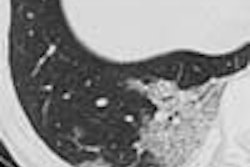It's official: When a popular Today show host gets screening colonoscopy on national television, everybody else wants one too.
A study published today in the Archives of Internal Medicine found that screening rates up to 20% higher than normal, dubbed the "Katie Couric effect," persisted throughout the U.S. for at least nine months after the now-infamous episode aired in March 2000 as part of a series on colon cancer prevention. (Couric subsequently underwent a televised virtual colonoscopy in March 2002.)
Study authors Dr. Peter Cram, Dr. A. Mark Fendrick and colleagues from the University of Michigan Health System in Ann Arbor and the University of Iowa in Iowa City wrote that low colorectal cancer screening rates make it vitally important to find new methods of persuading adults 40 and older to get screened.
"Despite robust evidence documenting the lifesaving benefits of colorectal cancer screening and a multitude of consensus statements and clinical guidelines promoting its use, fewer than half of Americans are screened," the authors wrote, adding that health fairs, mass media campaigns, and distribution of printed materials have not succeeded in increasing participation significantly (Archives of Internal Medicine, July 14, 2003, Vol. 163).
According to National Cancer Institute statistics, more than 130,200 Americans will be diagnosed with colon cancer in 2003; 56,300 will die from the disease. Yet thanks to a lead time of at least several years before many polyps grow into cancers, many deaths could probably be prevented by colorectal cancer screening.
In an effort to determine whether the celebrity promotional campaign with Couric increased the use of conventional colonoscopy, the authors conducted a retrospective population-based observational study of the procedure throughout the U.S., beginning 20 months before the show aired, and continuing for nine months thereafter.
The researchers relied on two different data sources. The Clinical Outcomes Research Initiative (CORI) database was used to compile data submitted by a voluntary consortium of 400 endosocopists in 42 sites in 22 states, who performed 95,000 colonoscopies from July 1998 to December 2000.
To supplement and validate the data, colonoscopies performed during a similar time period by a Michigan-based managed care organization covering 85,000 lives were also analyzed. Total colonoscopies from each data source were tabulated monthly.
The researchers measured mean colonoscopy rates, patient age, sex, and race proportions before and after Couric's screening exam and awareness series, using t tests for continuous variables and X2 analyses for categorical variables. Linear progression calculations were then performed for colonoscopy rates versus time, with an indicator identifying whether the patient's procedure occurred before or after Couric's procedure.
In order to explore the alternative hypothesis that all screening rates might have risen during the period, data from the two contributing sources were also tabulated for prostate-specific antigen (PSA) testing and mammography screening.
A chain-point analysis of the CORI data showed that the colonoscopy rate increased from 14.6 procedures per physician per month before the campaign to 18.6 procedures per physician after the campaign. Traditional statistical methods were then used to evaluate the nature and extent of the change.
In the CORI data, "The mean number of colonoscopies performed per CORI physician per month increased significantly in the nine months after Ms. Couric's campaign compared with the previous 20 months (15.0 per physician per month before vs. 18.1 after; P < 0.001)," the authors wrote. "After the Today Show series, the percentage of colonoscopies performed on women increased from 43.4% to 47.4% (P = 0.54). There was also a statistically significant but clinically minor decrease in the mean age of individuals undergoing colonoscopy, from 60.8 years to 59.9 years (P < 0.001)."
There was also an immediate "step-up" in CORI procedure rates after the series was aired. CORI physicians performed an average of 3 additional colononoscopies immediately after Couric's procedure, and the rate was sustained for the 9 months of the study, the authors reported.
In the managed care organization's data, the analysis detected an increase in procedures from 1.3 procedures per 1,000 members per month to 1.9 procedures after the broadcast. Also, colonoscopy rates were stable in the 14 months preceding Couric's procedure. A linear regression analysis of the managed care organization's data did not show a spike in procedures immediately after the show aired, but rather a sustained increase in screening rates that continued rising throughout the 9 months of the awareness campaign.
In the comparison of other cancer screening exams, there was no change in the PSA testing rate for men, and a drop in mammography rates among women following the broadcast (37.8 mammography exams before the broadcast per 1,000 members versus 35.6 after (P < 0.001).
After the broadcast, there was also a slight increase in colonoscopies among women compared to men (49.1% women before versus 51.6% women after).
"This test, which requires healthy people to undergo an invasive, uncomfortable, and often embarrassing exam, especially needed a celebrity advocate to reduce the stigma and fear, and thereby increase participation," said Fendrick, an associate professor of internal medicine at the U-M Medical School who co-directs the U-M Center for Healthcare Outcomes, Innovation and Cost Effectiveness Studies.
Still, there is a potential to inadvertently deliver the wrong message, the authors wrote, noting that Couric has stated that many of her friends planned to get tested by age 40, a decade earlier than what is recommended by most organizations.
"Celebrity spokespeople should deliver carefully targeted, evidence-based recommendations that will ultimately improve public health," Fendrick said. "Given the impact they can have on all types of health behavior, it’s important that celebrities team with medical professionals and societies to develop their campaigns."
Couric is a co-founder of the National Colorectal Cancer Research Alliance.
By Eric BarnesAuntMinnie.com staff writer
July 14, 2003
Related Reading
Couric's group launches free CD-ROM on colon health, May 20, 2003
Copyright © 2003 AuntMinnie.com




















